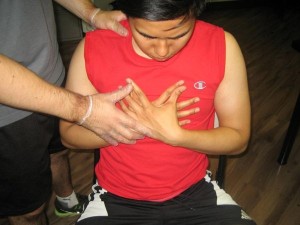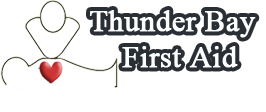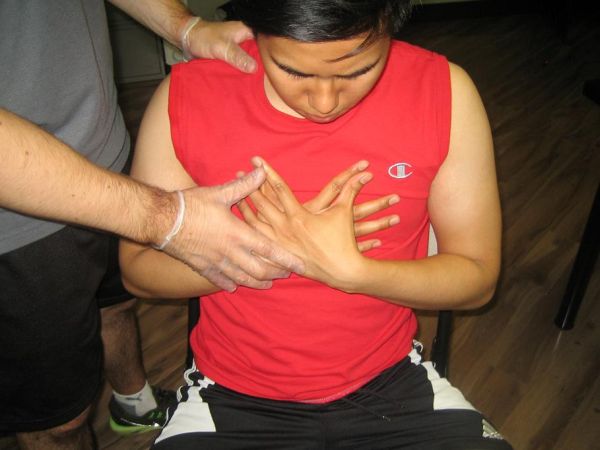Myocarditis is the inflammation of the myocardium or the heart muscle that is commonly caused by a viral infection, but may also be caused by other infections.

Myocarditis is the inflammation of the myocardium or the heart muscle, the second layer of the heart wall. It is commonly caused by viral infections, but other kinds of infections may also cause it, which will be discussed later. Myocarditis can also occur in otherwise healthy individuals. It is difficult to pinpoint the exact number of people that experience myocarditis as many people experience it with no symptoms and manage to recover without any treatment, never finding out if that they had myocarditis. This does not necessarily mean that treatment is not necessary for cases of myocarditis, as treatment is still recommended to avoid complications from developing. Complications include formation of blood clots, weakened hearts, or symptoms of heart failure. The best way to avoid myocarditis is to prevent or treat promptly any kind of infection.
Causes of Myocarditis
When there is an infection in the body, the body creates cells to fight off the infection and in turn, these cells will release chemicals. In cases wherein the disease-fighting cells enter the heart, it may release chemicals that may harm the heart muscle, resulting to the thickening, swelling, and weakening of the heart. The most common culprit is a viral infection. Other infections include:
- Viral infections
- HIV
- Herpes
- Coxsackie B
- Hepatitis C
- Cytomegalovirus
- Parvovirus
- Bacterial infection
- Streptococcus
- Staphylococcus
- Chlamydia
- Mycoplasma
- Treponema
- Borrelia
- Fungal infections
- Candida
- Aspergillus
- Cryptococcus
- Histoplasma
- Coccidioides
- Parasitic infections
- Allergic reaction to particular toxins or medications or animal or insect bites
- Presence of particular chemical in the environment
- Certain diseases that lead to inflammation throughout the whole body, such as rheumatoid arthritis, and sarcoidosis, among others
Signs and Symptoms of Myocarditis
In many of the recorded cases of myocarditis, no symptoms were present. However, those that recorded symptoms include:
- Irregular heartbeat that may cause fainting infrequently
- Dyspnea (shortness of breath) during exercise, which may also occur when lying down at night
- Sharp, stabbing chest pain or pressure that may radiate to the neck and shoulders
- Fatigue
- Fever, sore throat, headache, muscle aches, diarrhoea and other signs of infection
- Passing considerably less amount of urine than normal or incapable of passing urine at all
- Painful joints
- Swollen neck veins, joints or legs
Treatment for Myocarditis
Treatment for myocarditis will depend on the underlying cause. Some of the treatments are the following:
- Medications such as antibiotics, ACE inhibitors, calcium channel blockers, and diuretics
- Plenty of rest and decreased activity
- Hospitalization for complications of myocarditis
- Eating a low-salt diet
Disclaimer: This article should not be used for
medical diagnosis or advice. The purpose of this article is for information. It is highly suggested to take first aid courses to understand the complications that may arise from infections.Early detection and prompt action are the keys to saving a life. To understand more about infections and its complications such as myocarditis, enrol in First Aid Training and CPR Courses.
Sources:
Maddox, Thomas M. (2012).Myocarditis.WebMD. Retrieved on October 6, 2013, from http://www.webmd.com/heart-disease/myocarditis
Myocarditis.(2013). National Institutes of Health. Retrieved on October 6, 2013, from http://www.nlm.nih.gov/medlineplus/ency/article/000149.htm

